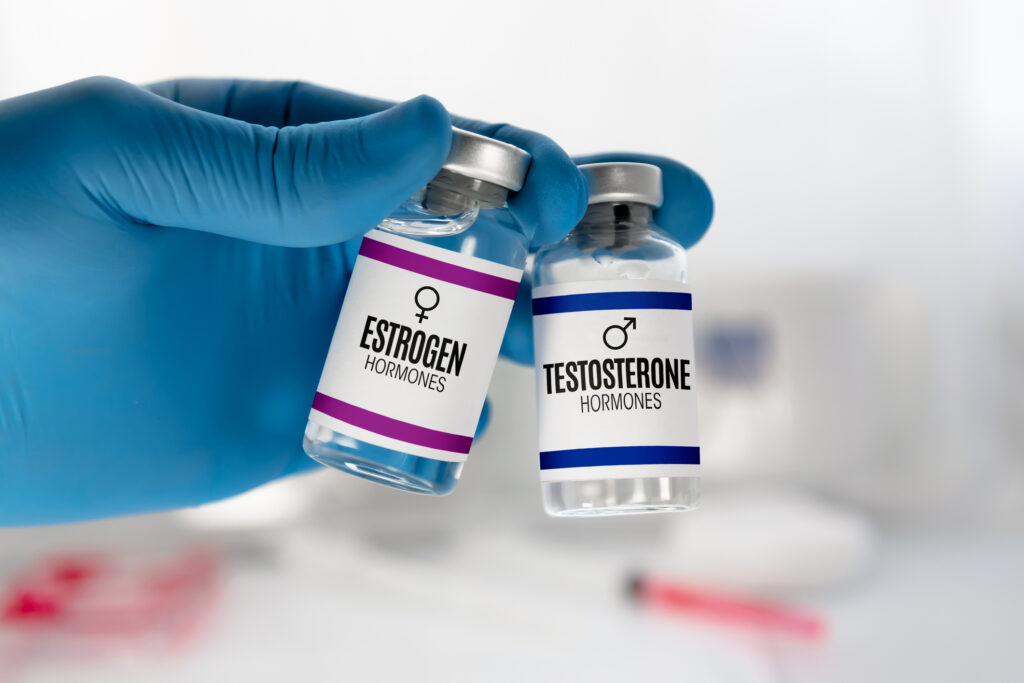
NASHVILLE (BP) – European nations and scientific professional societies are rethinking the wisdom of adolescent gender transitions.
“The experience of gender dysphoria has existed for many years. The recommended treatment for gender dysphoria, however, has changed significantly,” said Lilly Park, associate professor of biblical counseling at Southwestern Baptist Theological Seminary. “European medical and mental health communities are paying attention to studies and testimonies that disprove the efficacy of surgery and hormone therapy. We’re hearing more stories of regret and long-term health problems as a result of surgery or hormone therapy.”
Following a wave of legislation over the past two decades permitting so-called “gender-affirming care” for minors, Norway, Finland, Sweden and the United Kingdom are among European nations that have backtracked on hormone and surgical treatments for children who struggle with gender identity.
In Norway, the government’s Healthcare Investigation Board recommended earlier this year that legal guidelines be revised to define adolescent hormone therapy and gender-reassignment surgery as experimental and not supported by sufficient medical evidence. Finnish health authorities conducted a systematic review of evidence and concluded there is low certainty that hormone treatments will help minors questioning their gender identity. Subsequently, Finland restricted hormone therapy access for adolescents.
In Sweden, the government’s National Board of Health and Welfare said last year that hormone treatments for minors “should be provided within a research context” and offered “only in exceptional cases.” The U.K. is conducting an ongoing review of gender dysphoria treatments for minors that has put a hold on hormone and surgical treatments for some teens seeking gender transitions.
The groundswell of medical hesitation about gender transitions for youth led 21 clinicians and researchers from nine European countries to take their case to The Wall Street Journal. In a letter to the editor, they took issue with a claim published by The Journal in early July that “gender-affirming care improves the well-being of transgender and gender-diverse people.”
“Every systematic review of evidence to date … has found the evidence for mental-health benefits of hormonal interventions for minors to be of low or very low certainty,” the medical professionals wrote. “By contrast, the risks are significant and include sterility, lifelong dependence on medication and the anguish of regret. For this reason, more and more European countries and international professional organizations now recommend psychotherapy rather than hormones and surgeries as the first line of treatment for gender-dysphoric youth.”
Further, “there is no reliable evidence to suggest that hormonal transition is an effective suicide-prevention measure,” the European experts said. They called the “politicization of transgender healthcare” in the United States “unfortunate” and urged American policymakers to follow the science.
Europe’s penchant for socialized medicine may have something to do with its retreat from adolescent gender transitions, said Debbie Steele, professor of Christian counseling at Gateway Seminary. Each minor in America who makes a gender transition will generate approximately $60,000 for pharmaceutical companies over his or her lifespan, she said. That leads to tremendous pressure from the pharmaceutical industry on U.S. politicians to maintain the availability of hormone and surgical therapies for minors. European nations with government health care are insulated from some of that financial pressure.
“Endocrinologists and other medical professionals in socialist countries are rethinking,” said Steele, who lived in the former Yugoslavia for 12 years. “They have a different relationship with the big pharm companies than politicians and the medical community have in America.”
At least 19 U.S. states have placed limitations on gender transitions for minors, but those restrictions typically are enacted by state legislatures and not medical authorities, as in Europe.
The issue was the subject of a hearing held Thursday (July 27) in the U.S. House of Representatives Judiciary Committee. The committee heard testimony from at least one well-known “detransitioner” – 19-year-old Chloe Cole. Cole, who began attempting to transition to a man at age 12 and underwent a mastectomy at age 15, testified that she has suffered “lifelong, irreversible harm” and called medical gender transition of minors “one of the biggest medical scandals in the history of the United States of America.”
The increased reticence to let teens attempt to change their gender has led some to wonder if Christianity offers a better approach to gender identity struggles. Park and Steele say it does.
The first step to helping with youth gender confusion is treating the struggling teen “as a person going through a difficult time,” Park said.
“Listening and asking good questions are essential to better understand a person’s struggles,” Park said. “We want to demonstrate love in how we engage with the teenager but also be true to the Bible’s teaching on sexuality.”
Park’s approach aligns at least partially with that of Riittakerttu Kaltiala, chief psychiatrist at one of Finland’s two government-approved pediatric gender clinics. Eighty percent of teenagers who struggle with their gender identity will come to terms with their biological sex eventually, Kaltiala said, advocating mental health care instead of rushing into medical treatments.
Steele added that Christians should “be trained to validate and normalize the emotional pain and despair that teenagers are experiencing.” Believers should exhibit “care and compassion” without “accepting this barbaric practice of mutilation.”
“Family therapy makes sense for these kids and their families,” Steele said. “Teenagers can have their real-life struggles addressed without normalizing the need for mutilation, permanence and sterility.”
In June, SBC messengers in New Orleans adopted a resolution “opposing ‘gender transitions.’” The resolution stated that Southern Baptists “condemn and oppose ‘gender-affirming care’; and all forms of ‘gender transition’ interventions.”
That biblical wisdom bears remarkable similarities to what European clinicians seem to be discovering through trial and error.
“Health care should not provide interventions that we do not know to be safe and beneficial,” Mikael Landén, a professor and chief physician at the University of Gothenburg in Sweden told U.S. News and World Report. “From the lack of evidence follows that a conservative approach is warranted.”
-30-





















